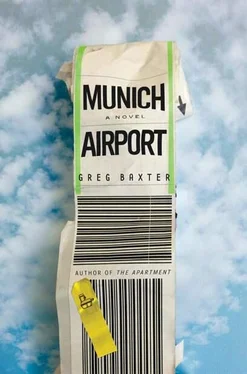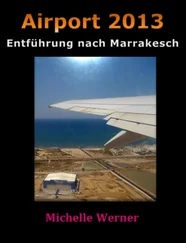I lived in Nunhead for one year. During that year, I underperformed at work. The people I worked with knew my marriage had ended, so they allowed me to underperform for a while without complaint. But after five or six months I started getting hauled in to discuss mistakes, missed deadlines, poor organization, and even, on a few occasions, my physical state. I had never really made mistakes before, I’d always done good work, I had always worked hard, I had always arrived early and stayed late, I wasn’t particularly friendly with any of my colleagues but I got along with them, and I wore nice suits and nice ties and had my shirts dry-cleaned, and I shaved, and so on. So I had become unrecognizable to them. I managed a few people, and they were constantly going to my boss to complain that I’d become unpredictable and unkind. Finally, they told me I had to attend a management re-training retreat in Sutton for a week. I could picture it — bullies, sexual harassers and aggressors, alcoholics, morons, sitting around listening to a man and a woman go through slide presentations and lead role-playing games and administer personality tests. I asked them to reconsider. I explained that I was nearly done. With what? they said. But I couldn’t explain. I left early that day. I guess I actually walked out without any explanation. I walked around London and realized that I would never be done with whatever was happening to me so long as I worked for those people, or for anybody. So I decided — probably unnecessarily, since surely they had made up their minds, when they saw me storm out, to fire me — to quit. I found myself excited and eager to go tell somebody about my decision. But after the marriage ended, my wife took all her friends back, and I didn’t want to talk to anybody from work, so I went home and woke my artist housemate. I told him to get up, put some clothes on, and come out for a drink. To my surprise, he came with me. That night it rained heavily, and we had to take umbrellas with us. We walked about twenty minutes to a pub that had blacked-out windows and no women. The artist and I got drunk, and I talked about my plans to start a business, to work for myself, and to work from home if I wanted — this would require me moving out. The artist took the news indifferently. We grabbed a burger and chips up the road, and ate them under umbrellas in a parking lot. I had all the buyout money left. I hadn’t spent a penny of it. I could use it to live on while I got my business started. That’s what I did. I stopped drinking, got regular sleep, found a new flat, and prepared myself, after more than a decade and a half in London, to become a new kind of success.
I stopped running in the mornings, in darkness, in the rain and wind, and switched to a treadmill. I became a member of a gym on the fourteenth story of a central-London highrise. It’s not easy to get a membership. It’s full of executives and start-up guys and investment bankers. It’s also full of people in entertainment. I pushed very hard to get membership, because this was a place where you could meet people. I joined a lot of other clubs, too. I got involved in the chamber of commerce. I went to a lot of lunches and dinners, a lot of conferences. I got myself on every mailing list I could think of. For about six months, all I did was meet people, make pitches, exchange business cards, talk about the future of marketing. I didn’t buy nice furniture or a television for my flat, or gadgets and appliances. I’d achieved, at the very least, a healthy separation between my desire to run a successful business and the temptation to surround myself with the objects that successful people feel the need to own. At executive functions, chamber of commerce lunches, and conferences, people asked about my clients, and I explained that I was just starting, and I wanted to be selective. But the truth was that after six months of getting no work, I was asked by my old employer to come back in and do some of the same work I’d done as an employee, and I ended up back in the same office I stormed out of, except in a different corner of the room, and without health benefits or paid holidays. I started and finished a distance-learning MBA at Duke, and when I had the MBA I left that firm for a slightly more independent role at the supermarket chain. I still have my membership at the gym. Though I run far less often, and with far less determination, than I did twelve or ten or eight years ago, I attend the gym when I can — or when the journey doesn’t seem too far — and I hop on a treadmill after half an hour of weights or whatever. The treadmills are all in a line, facing the same direction, putting all the runners at the front of a curiously graceful and unwinnable race. We can choose to look through blue-tinted glass windows over the Thames and toward south London or watch financial news on huge televisions. Muscular young men in tight white shirts, and beautiful young women in white tracksuits — the gym staff and the trainers — come by and check on us. The guys nod. The girls smile. I don’t go for the networking anymore, though sometimes it happens. I go because I like the treadmills. I like the view. I listen to classical music, mostly, because I don’t have any other type of music on my phone. More than anything else, I listen to Gould playing Bach. One of the reasons — and I cannot explain this properly — that it makes such good running music is Gould’s humming. Gould hums while he plays, but sometimes I think that I myself create the humming, that it comes from my own body. Also, if the music is the right tempo, and the pace of the treadmill is the right speed, and I am feeling fit enough to run fluidly, to take long strides and hold my shoulders still, I can attain a style of motion that seems to require no exertion at all, and in which the world slows down so profoundly that everything I sense and experience detaches from the fluidity and connectedness of reality into discrete components that my thoughts can rearrange in space, so that Gould’s humming can be placed within the blue glass of the window, or in the clouds, and the piano music can be placed in the streets of London below, as though the notes that Gould plays are the cars and buses and bicycles penetrating all the distant silences.
In the airport, now, my father is re-energized by his brief sleep. He stops and enters every store, even stores for handbags and women’s clothes, to browse. My fatigue is getting worse, and so is the nausea from hunger. My legs are heavy. Trish walks beside my father and they talk. I am five or six steps behind them. We go very slowly. We spend ten minutes in a souvenir shop. Another ten or fifteen in a place where authentic Bavarian sausages and meats are sold. My father picks nothing up. It is not a forensic exploration. It is just a philosophic stroll, something I imagine he might do around the grounds of a university, accompanied by one of his students. I happen to be the kind of person who picks things up. Whatever momentarily distracts my father — the objects he points out to Trish, or that Trish points out to him — I have to handle in order to examine. Even dresses. Even clothes for toddlers. He used to say, when I was a boy, that I was going to become an archaeologist.
Outside the shops, the terminal has got busier. The fog is beginning to evaporate — At last! says my father — and the departures boards have crowds in front of them. A freestanding advertisement in the middle of everything — a tall, backlit obelisk — contains, on both sides, an advertisement for The Economist . The ad includes a reproduction of an article. I stop and read. My father stops, puts his glasses on, and reads it with me. Trish stops, too. The story is about two companies vying to send the first commercial passenger flight to the moon. It’s an effective, clean bit of advertising. Just the article — black text on a white background, with The Economist in red at the bottom. The two companies are Space Adventures and Excalibur Almaz. Once they sell all the tickets for the flight, they’ll build the spaceship. It — whether Space Adventures or Excalibur Almaz builds it first — will be made using old Soviet parts. Excalibur Almaz will use an experimental electromagnetic propulsion system that will keep the mission in space for six weeks, and take humans farther than they’ve ever been from Earth. Space Adventures, I guess, will just use old-fashioned solid fuel. A ticket on either will cost one hundred and sixty million dollars. Already, one ticket has been sold. Trish reads the advertisement, too, and is the first to comment. Somebody has paid a hundred and sixty million dollars to fly to the moon, she says. My father, who finishes the article last, because of his eyesight, and because he is a more careful reader, says, suspiciously, and slowly, Interesting.
Читать дальше











